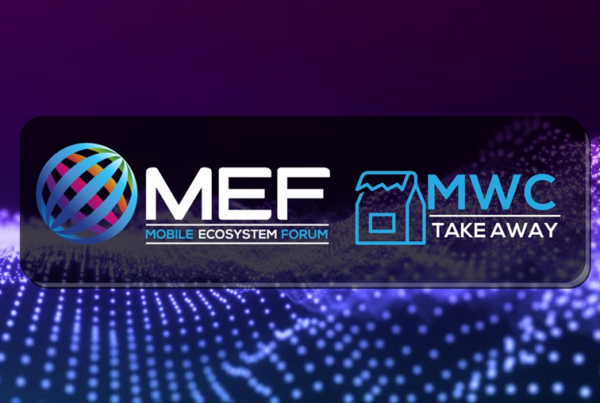Why has Google bought HTC when it only just sold Motorola? Does it make money from hardware now? What happened to ads and search? And whatever will Samsung think? Tim Green chews over some of these questions following the week’s big M&A news…
By now, you’ll have heard the news. Google just bought Humongous Tinfoil Catamaran. It acquired Hipster Troll Carwash. It purchased Hold This Cat.
Confused? Then you don’t remember HTC’s 2013 marketing campaign featuring a (very expensively hired) Robert Downey Jr. The ads addressed the fact that no one knew what HTC stood for and had some fun with it.
Hence Hipster Troll Carwash.

Trouble was the viewers didn’t know what the heck the ads were about either. The campaign is now remembered as one of the most ill-considered in mobile history. It did nothing to reverse HTC’s fortunes.
The company had been a world beater in 2011. However, the last six years have been dismal.
Hence the Google deal.
Clearly HTC had every reason to seek some kind of respite. It needed rescuing. But what’s in this arrangement for Google?
So many questions. Let’s look at them.
1. What went wrong at HTC?
In 2011, HTC was the sexiest handset maker in the world (with Apple). Nokia and Sony were in flux. Samsung was considered a bit boring. Motorola was nowhere. It sold 42 million phones that year.
Then it all fell apart. In 2016 HTC sold 1.8 million phones.
The mobile medium itself may be weakening some of Google’s historic strengths. Voice interaction is the most obvious factor. Google knows some of its services rely on typing and text boxes. But what happens if everyone uses Amazon Alexa or Samsung Bixby?”
Why? Well, that’s very hard to say. It’s certainly not the products. During the course of that market collapse, HTC launched some very well-regarded phones. Its ‘One M8’ model won a ton of awards in 2014.
No, the decline was more likely a combination the aforementioned branding missteps plus distribution issues. Don’t forget most people get their phones from their operators. So product design and consumer marketing is not enough. You have to get good support from Orange, Telenor, Voda and the rest.
That’s something Samsung (and increasingly Huawei, ZTE and others) have clearly done much better than HTC.
2. What did Google buy?
Actually, Google has not bought HTC outright. This deal is what tech people call an ‘acquihire’. Google has paid $1.1bn for HTC’s engineering talent and IP. Meanwhile HTC can still make its own phones (and also its Vive virtual reality headsets). And it says it will.
3. Why HTC?
To repeat, HTC’s products still stand up. Clearly its product and engineering teams are well thought of. Also Google has lots of history with HTC. The Taiwanese firm made the first ever Android device (the Dream) in 2008.
 And last year, when Google decided to build a high-end device of its own (the Pixel), it again turned to HTC. Now, it’s effectively bought the HTC employees that made the Pixel.
And last year, when Google decided to build a high-end device of its own (the Pixel), it again turned to HTC. Now, it’s effectively bought the HTC employees that made the Pixel.
4. Why would Google buy HTC when it just sold Motorola?
Most readers will remember that Google already owned a smartphone manufacturer once. Six years ago, it paid $12.5 billion for Motorola. in 2014, it sold Moto to Lenovo for a cut-price $3 billion.
So what’s the difference this time? Well, experts say Google bought Moto for its patents (this was when patent wars were at their most violent) rather than any attempt to be a hardware company.
That said, it did do much to re-establish Motorola with hits like the Moto G and Moto X.
5. So is Google now back in hardware?
The short answer is yes. Around the time Google was selling Motorola it was buying Nest (smart heating systems), and launching the Google Chromebook Pixel (a £1,000 laptop) and Chromecast TV streaming stick. Then, last year, came the Pixel.
6. But why hardware? Isn’t Google an ad company?
Good question. When Google bought Motorola, analysts rightly wondered why Google would voluntarily compete against the OEM partners that made Android such a success.
After all, Google is a machine learning company. The more users it has, the more it can understand collective behaviour and also target individuals.
That approach worked brilliantly during the growth stage of Android. Today, the OS is on 88 per cent of phones.
However, in recent years the dynamics of Android have changed. Google needs people to use its flagship services to keep its ad business strong – services like Search, Maps, YouTube and Gmail. But some OEMs would rather offer alternatives.
Also, the mobile medium itself is weakening some of these fundamentals. Voice interaction is the most obvious factor. Google knows some of its services rely on typing and text boxes. But what happens if everyone uses Amazon Alexa or Samsung Bixby?
It has to adapt. It has, with services like Google Now and Google Assistant. Going it alone on hardware gives Google a better chance of ‘owning’ the possible next phase of mobile.
7. Can it succeed?
Impossible to answer. Supporters say Google is full of smart people. It’s merely adapting for the future and has already shown with Pixel that it can make great hardware.
Critics argue the Pixel phones my have been well-received, but they sold only 2m. They say Google is a brilliant engineering company that can’t do consumer marketing. They wonder if it can win over hundreds of MNOs all over the world. After all, selling direct still doesn’t work (it tried and failed with that in 2010).
It just goes to show that even when you have a market cap of $652.45 billion you can never stop fretting about the future.
Naturally, the e-commerce wannabes are trying to overcome these issues. Some offer cash-on-delivery for example. But, again, this brings its own problems. Another Nigerian contact of mine said she knows a lot of people will order goods just to see whether they get delivered, with no intention of actually paying when they do.
Ultimately – and you probably guessed where this was going – it will be mobile that does most to resolve these issues. Two MEF members – Gemalto and iTouch – each told me they believe new forms of rich messaging could move the market forward.
A smart message could be pushed to targeted consumers. It could link to new forms of mobile money (M-pesa, Orange Money, mCash etc) to make payment easier and it could even be reverse billed to ease the data cost to recipients.
Interesting, and more convenient that strapping that just-purchased ironing board on the back of your moped.





